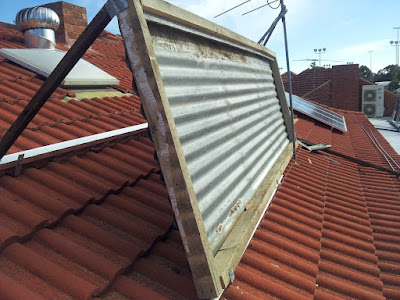Durability and Lifespan of Commercial Roof Installation & Replacement | Naples-roofing
Whether it is a residential, industrial, or commercial roof, all roofs need replacement or the installation of a new roof at some point. However, the durability or the lifespan of a commercial or industrial roof is based on the weather conditions, the kind of material used, and various other factors. Naples Roofing provides repair, replacement, and new roof installation in USA. On average, the life expectancy and durability of a commercial roof when installed and maintained properly can last somewhere around 10 to 40 years.
Factors that affect Lifespan or Durability of Commercial Roof
- Weather Conditions
Inclement weather has a significant impact on the structural integrity of a business roof. Harsh climatic conditions wear down a roof over time, resulting in roofing system deterioration. Preventative roof maintenance and timely repairs, on the other hand, can extend the life of a business roof. A business roof can quickly deteriorate due to the freezing ice of winter. When water freezes, it may add up to 60 pounds to each cubic foot of roof. When water thaws, moisture penetrates into fractures and refreezes, causing tiny fractures to form and leaks.
- Roof Type
Apart from the
weather conditions, the type of roof also has an impact on how long a business
roof will last. Flat roofs, low-sloped roofs, and pitched roofs are all options
available to building managers. Each has advantages and disadvantages that have
an impact on longevity. Although flat roofs are easier to construct and less
expensive to maintain, poor drainage is a major cause of roof decay. Standing
water on the roof can deteriorate structural components and cause leaks inside
the structure.
Low-sloped roofs, which encourage water drainage, are the polar opposite of flat roofs. Low-sloped rooftops require fewer repairs and replacements since there is less risk of standing water harming the roof. When heavy snow does not melt quickly, however, the low-sloped roof becomes significantly heavier. Despite the fact that commercial pitched roofs are uncommon, they are nevertheless used in conjunction with flat and low-sloped roofs. Greater water runoff is aided by pitched roofs. Repairs and upkeep are difficult and expensive due to the roof's high slope, which might shorten its lifespan.
- Roofing Material Used
A business roof's
life expectancy is also influenced by the roofing materials used. PVC roofing
systems, TPO roofing systems, EPDM roofing systems, metal roofing systems, and
asphalt roofing systems are all common roofing materials. The common commercial
roofing material and its expected lifespan are as follows:
- TPO (thermoplastic polyolefin) has a lifespan of 22 to 30 years.
- EPDM
(ethylene propylene diene terpolymer) has a lifespan of 22 to 35 years.
- PVC
(polyvinyl chloride) has a lifespan of 20 to 30 years.
- Metal
roofs have a lifespan of 30 to 45 years.
- The
lifespan of asphalt roofs is 20 to 40 years.
Naples Roofing is a roofing contractor in USA, providing roof repair, replacement, and new roof installation services for all types of roofs and roofing materials at an affordable price along with on-time delivery of the services.





Comments
Post a Comment